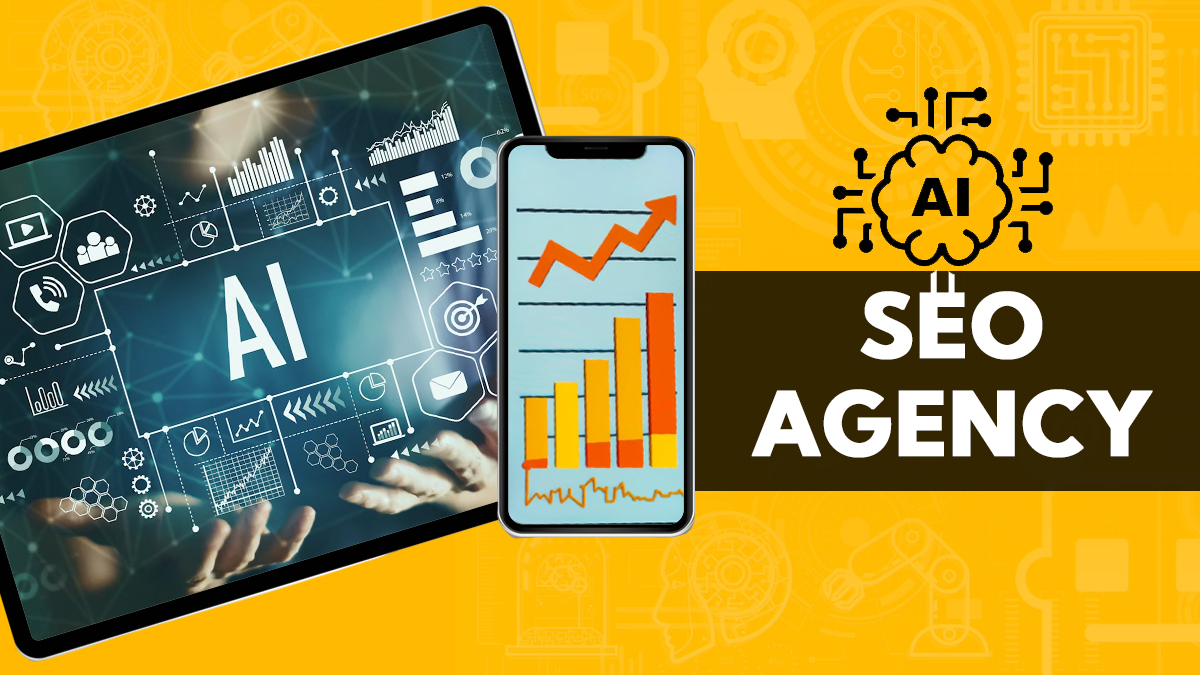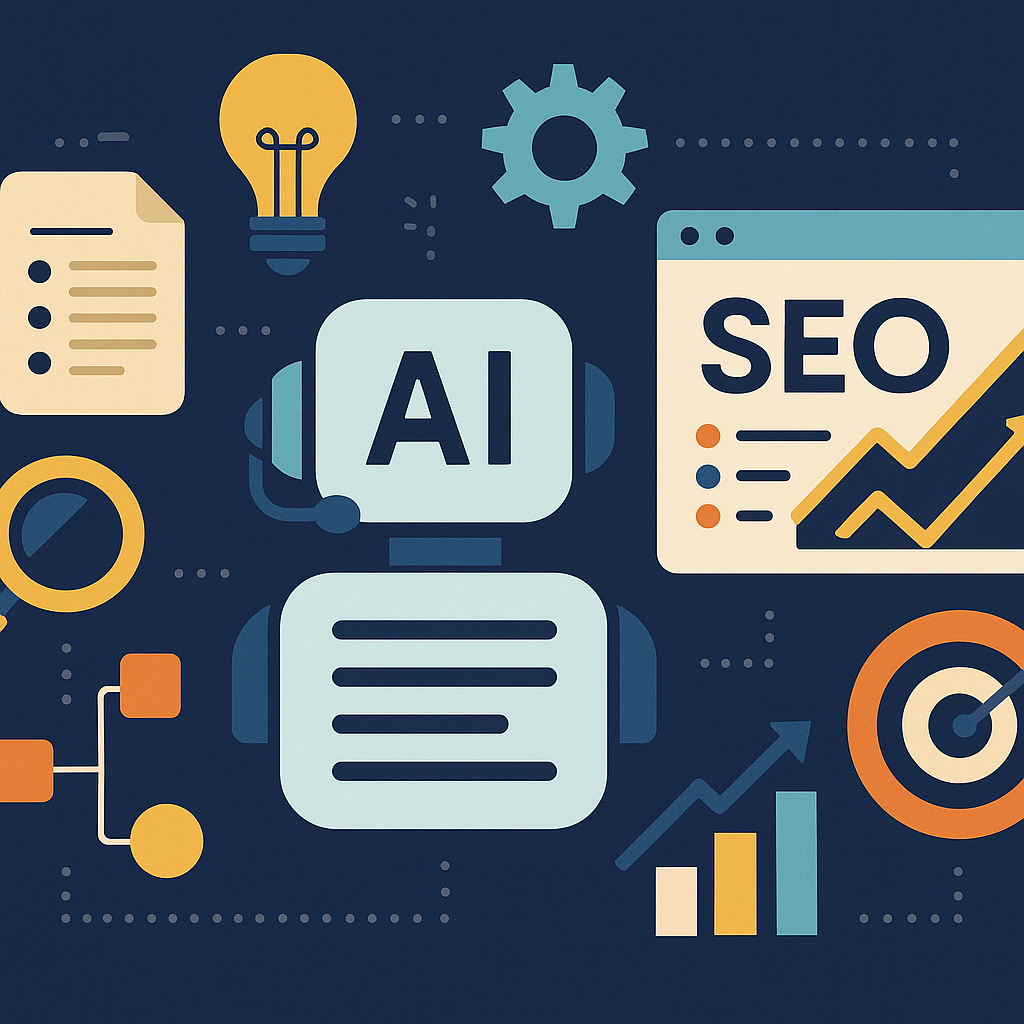Understanding the AI Shift in Local SEO
The digital world has changed at its core. A search for a local business today connects you with smart AI systems that grasp context, intent, and predict what you need.How AI is changing local search behavior
AI has altered the way people find and select local businesses. Users now get information straight from search results without clicking through to websites. These “zero-click searches” have grown by more than 30% with AI-powered results.AI assistants like Siri and Google Assistant have revolutionized local queries. People talk to their devices naturally instead of typing keywords. This transformation makes long-tail, natural-language phrases vital for local visibility.“AI-powered search experiences are creating hyper-personalized, agentic interactions,” notes Crystal Carter, head of SEO Communication at Wix. “These conversations are built around understanding and addressing customer intent at their core”.AI has made search more aware and customized. A search for “coffee shop open now” doesn’t just match keywords. The results factor in your location, time, search history, and review sentiment to show relevant options.AI’s impact shows in how results appear. Google’s AI Overviews now answer queries directly at the top of search results, before traditional listings or the local map pack. This placement affects website visibility and click rates by a lot.Your potential customers expect quick, precise answers that match their needs—not just a list of possible links.Why traditional SEO methods fall short today
The old local SEO playbook doesn’t work anymore. Here’s why:- Keyword focus vs. intent matching – Old methods relied heavily on exact keyword matches. Modern AI algorithms understand synonyms, related concepts, and user intent. A plumbing company that optimizes only for “plumber near me” might miss searches for “fix leaking faucet” or “water heater repair service.”
- Manual updates can’t keep pace – AI keeps refining search algorithms faster than manual SEO adjustments can react. Automated local SEO tools adapt to algorithm changes right away, which helps maintain or improve rankings easily.
- Data limitations – Humans can’t process the huge datasets that affect local search rankings. AI tools analyze patterns across locations, customer reviews, and competitor performance at scale.
- One-dimensional strategies – Old SEO treated all platforms the same way. AI visibility depends on different factors across platforms. Google Business Profile signals matter for Maps, while web content authority determines visibility in AI-driven answers.
Optimizing Google Business Profile with AI
Your Google Business Profile (GBP) acts as your digital storefront for local searches. AI tools are now accessible to more people. You can transform this profile from a static listing into a dynamic marketing asset through automation.Automated updates and post scheduling
Manual updates of business information are now a thing of the past. AI-powered tools monitor and suggest profile updates from multiple data sources. Your listing stays fresh without constant attention.Google uses information from various sources to automatically update your profile. These sources include user reports, your website content, and third-party directories. Google aims to update information for over 20 million businesses globally by 2023 using AI technology.Automatic updates bring both benefits and challenges. AI might add services you missed mentioning. A well-drilling contractor learned this the hard way. Their profile showed “municipal water supply” incorrectly as a service. This resulted in many wrong calls.You should take these steps to prevent unwanted changes:- Check your GBP weekly for pending updates
- Keep information consistent across online platforms
- Look for orange-highlighted text in your profile that shows suggested changes
AI-generated descriptions and attributes
Google’s AI-powered description generator makes creating compelling business descriptions simple. It creates engaging, SEO-friendly content based on your existing profile information.Here’s how to use this time-saving feature:- Go to your Business Profile and click Edit profile > Business information > About
- In the “Description” field, click “Suggest description”
- Review the AI-generated text and click “Try again” for different options
- Click “Use” to apply the suggestion (after reviewing for accuracy)
Prompt templates for better GBP content
The right prompts help you get better results from AI tools. Specific templates can improve your Google Business Profile content.This format works well for post creation: “Create a Google Business Profile post about [specific service/product/promotion] that includes [key benefit] and encourages [desired action]. Include relevant keywords like [local keywords].”AI helps generate common customer questions for Q&A sections. Try this template: “Generate 5 frequently asked questions about [your business type] in [location], including questions about [specific services]. Provide concise, helpful answers that showcase our expertise.”Review responses need a personal touch: “Draft a response to this customer review that acknowledges their feedback about [specific point], expresses gratitude, and mentions our commitment to [relevant business value].”These templates create customized results quickly. They maintain your brand voice while optimizing local search visibility.AI strategies help your Google Business Profile remain competitive against manual listings. Automated local SEO saves time and boosts visibility when local customers search for your services.Creating Hyperlocal Content with AI Tools
Local businesses need content that connects with people in their neighborhood. AI tools have turned this art into a science that anyone can master.Using AI to identify local content gaps
AI-powered content analysis tools are revolutionizing how we spot untapped local content opportunities. These tools look at search patterns right in your neighborhood and show you topics your competitors haven’t touched yet.The automated gap analysis scans competitor websites, local social chatter, and search trends. You’ll spot exactly what local information people need but can’t find. This takes away the guesswork from planning your content. Data, not hunches, will tell you what to create.Research shows that AI tools analyzing local search patterns can spot neighborhood-specific topics that people actively search for. This gives you a clear path for creating content. Your material will actually answer questions that locals are asking.Automated content gap analysis shines because of its speed. Tasks that once took weeks now take minutes. The tools keep watching local search trends and let you know when new opportunities pop up.Here’s a practical tip: Let AI analyze your three biggest local competitors. Find their content blind spots and fill those gaps with your material. Soon enough, your business will become the source everyone turns to for neighborhood info that others miss.Generating neighborhood-specific guides
Detailed neighborhood guides show you really know your area. AI helps create these location-specific resources that prove your local expertise.Start with this neighborhood guide template:“Create a detailed guide to [specific neighborhood] in [city] for [target audience]. Include:- Brief history and character description
- Five must-visit locations with specific street names
- Local transportation options and parking considerations
- Seasonal events specific to this area
- Lesser-known facts or hidden gems”
Prompting AI for seasonal and event-based content
Local events and seasons give you perfect chances to create timely content. AI helps you make the most of these moments without much effort.Your seasonal content should include specific local context. Don’t just ask for “winter tips.” Ask for “winter preparation tips for homeowners in [specific neighborhood] who deal with [local weather challenge].” This makes your content appeal to local readers.Local business spotlights work really well too. Try this prompt template:“Write a locally-focused article about [business type] in [specific neighborhood], highlighting:- How this business serves unique needs of [neighborhood] residents
- Specific challenges in this location
- Connections to local community events
- Perspectives from local business owners
- Neighborhood-specific recommendations”
Managing Reviews and Reputation with AI
Online reviews shape 88% of customers’ buying decisions. Your business reputation has evolved beyond word-of-mouth into a digital, measurable asset that AI helps manage.Sentiment analysis for local feedback
AI-powered sentiment analysis tools decode the emotional tone in customer reviews. These systems get into the context and nuance of feedback. Star ratings alone don’t tell the whole story about your customers’ feelings toward your business.Modern sentiment analysis recognizes specific emotions like happiness, anger, confusion, and disappointment immediately. Local businesses can turn this into applicable information.“By always being aware of who talks about you and what, you get the power to understand and protect your reputation in a fiercely competitive market,” notes one reputation management expert.The ground applications make a real difference:- Identify recurring issues before they damage your reputation
- Understand location-specific feedback patterns across multiple storefronts
- Spot emerging trends that might not be obvious from ratings alone
Automated review responses with local context
Manual responses to every review become impossible at scale. AI creates customized responses that keep your brand voice while acknowledging specific customer experiences.Businesses that respond to reviews earn 25% more revenue. About 68% of customers upgrade their review if they receive a personalized response within 24 hours.AI response tools provide:- Bulk reply capabilities that create unique, personalized responses to dozens of reviews at once
- Context-driven suggestions that mention specific details from the review
- Response templates customized for different star ratings, sentiment, and locations
Tracking brand mentions in local media
Customers discuss your business on many platforms without tagging your accounts. AI monitoring tools scan the internet continuously and alert you to conversations you might miss otherwise.These tools scan media 24/7, which means you’re not tied to office hours. You receive crisis communication alerts when negative stories appear—even during off-hours.The technology understands more than just keywords:- Images and video content related to your business
- Facial expressions in visual media
- Slang and colloquial references specific to your area
Smarter Local Link Building and Citations
Quality local links and accurate citations are the foundations of successful local SEO. Many businesses still do this work manually. AI now provides smarter ways to boost your local presence.AI tools for finding local backlink opportunities
Looking for relevant local backlink sources used to take forever. AI tools now scan the web to help you find valuable local linking opportunities you might miss otherwise.These smart systems look at your top competitors’ backlink profiles. You’ll learn which local directories, blogs, and news sites help their rankings. This knowledge shows you exactly where to focus your outreach.AI tools like BuzzStream help find neighborhood-specific link opportunities by looking at:- Local business directories in your area and industry
- Community blogs and news sites in your neighborhood
- Local influencers and businesses that could become partners
Automating citation consistency and updates
Wrong business information across the web hurts your local SEO. The average enterprise has 3,500–10,000 duplicate local business listings. Manual fixes would take 44 weeks.AI-powered citation tools solve this by:First, checking hundreds of directories to find your business listings Second, spotting differences in your name, address, and phone number (NAP) Third, updating this information everywhere automaticallyThese tools make the work faster and more accurate. AI handles everything through APIs instead of manually updating each directory. Information flows smoothly without human input.Businesses with multiple locations can’t handle citations manually. AI lets you make one change and update all directories almost instantly.Monitoring link performance over time
Getting backlinks starts the process – watching how they work helps improve your strategy. AI monitoring tools track how each backlink changes your local search rankings, traffic, and SEO health.These systems alert you when:- New backlinks show up (or disappear)
- Citations change unexpectedly
- Competitors get new local links
AI-Powered Keyword Research and Mapping
AI tools now exploit gold nuggets of local search opportunities that were previously buried in data. These opportunities are the foundations of any successful local SEO campaign.Finding hyperlocal and ‘near me’ keywords
AI tools scan search patterns to find location-specific terms that customers actually use. The systems identify neighborhood-specific phrases, landmark-based queries, and seasonal variations well beyond simple “plumber near me” searches.AI’s analysis of search engine autocomplete data reveals the real magic. Users’ conversational phrases like “where can I get Chinese food near me” or “all you can eat Chinese food near me open now” become visible. These long-tail terms combine lower competition with higher purchase intent.Local Falcon’s technology measures hyperlocal search visibility through its Share of Local Voice metric. The system shows your business’s frequency of appearance for specific search terms within a given radius. Businesses can spot gaps their competitors overlook with this data.Mapping keywords to specific location pages
AI simplifies keyword distribution for businesses with multiple locations. The systems analyze each location page’s best-performing terms and prevent cannibalization where pages compete for identical terms.Multi-location businesses benefit from AI’s automatic content gap analysis. The system spots missing location-specific content opportunities. Rich, customized content suggestions for each community help avoid thin pages.Prompting AI for long-tail local queries
Results improve dramatically when you know how to “talk” to AI tools. These prompt formats work well:- “Generate local SEO keywords for a [business type] in [location]”
- “List 15 long-tail keywords for [your topic]”
- “What are the trending keywords in [specific location]?”




Jenna Ruiz
The note about AI analyzing sentiment in reviews was a smart angle, it’s overlooked in most local SEO strategies. I’ve seen listings with strong review sentiment outrank others with more reviews, and this article helped explain why. Also loved the callout that 46% of all Google searches have local intent. That alone justifies doubling down on location-focused optimization.
Nick Mikhalenkov
Appreciate that, Jenna. You’re spot on, Google’s algorithm is leaning harder into review quality signals, not just volume. We’ve tested this across multi-location listings, and sentiment-weighted reviews correlated with a 12–18% visibility boost on local pack rankings. Smart brands are now treating review replies and AI sentiment analysis as core SEO levers, not afterthoughts.